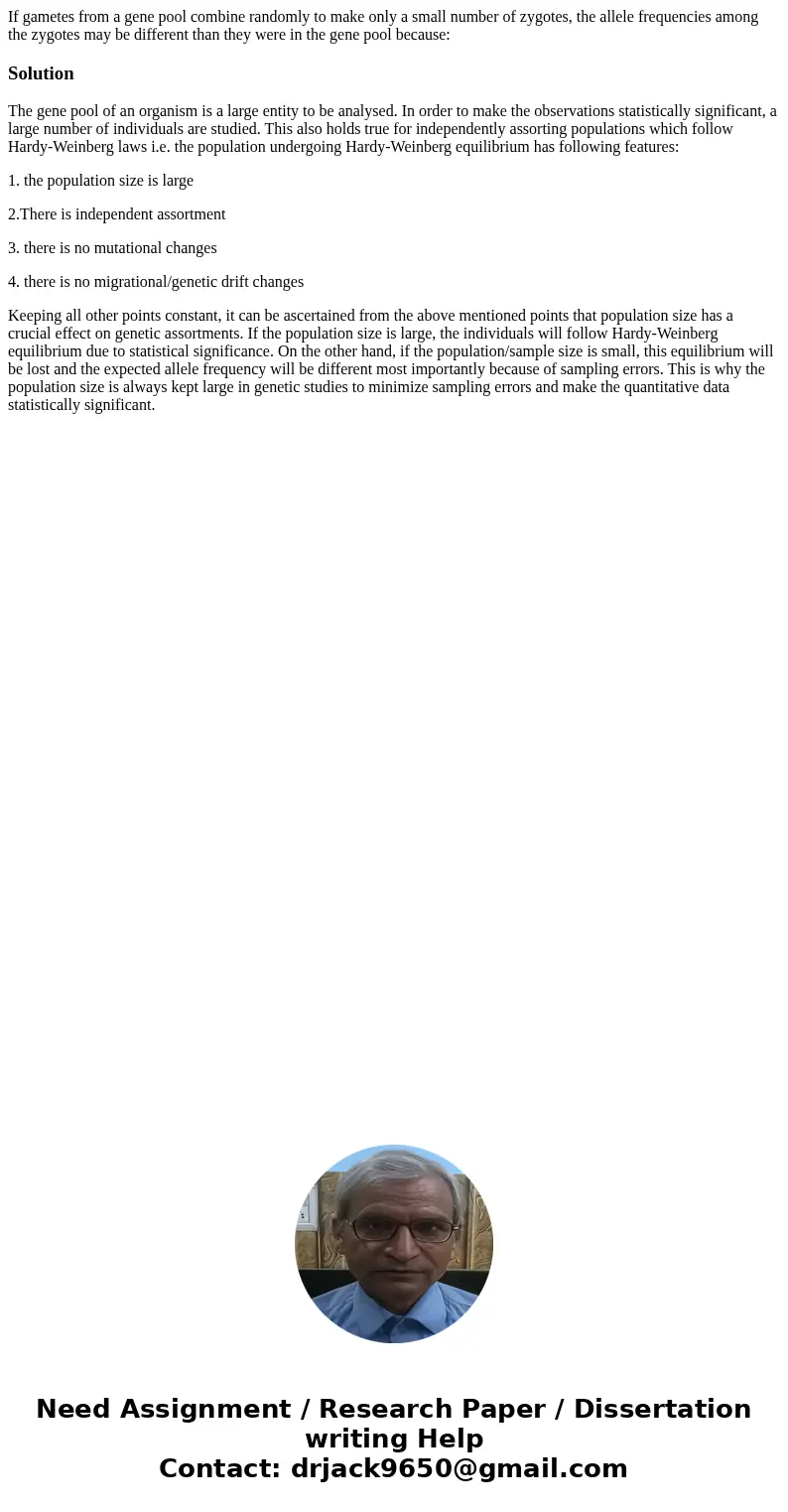If gametes from a gene pool combine randomly to make only a
If gametes from a gene pool combine randomly to make only a small number of zygotes, the allele frequencies among the zygotes may be different than they were in the gene pool because:
Solution
The gene pool of an organism is a large entity to be analysed. In order to make the observations statistically significant, a large number of individuals are studied. This also holds true for independently assorting populations which follow Hardy-Weinberg laws i.e. the population undergoing Hardy-Weinberg equilibrium has following features:
1. the population size is large
2.There is independent assortment
3. there is no mutational changes
4. there is no migrational/genetic drift changes
Keeping all other points constant, it can be ascertained from the above mentioned points that population size has a crucial effect on genetic assortments. If the population size is large, the individuals will follow Hardy-Weinberg equilibrium due to statistical significance. On the other hand, if the population/sample size is small, this equilibrium will be lost and the expected allele frequency will be different most importantly because of sampling errors. This is why the population size is always kept large in genetic studies to minimize sampling errors and make the quantitative data statistically significant.

 Homework Sourse
Homework Sourse